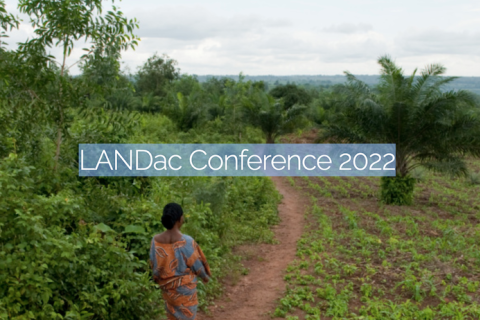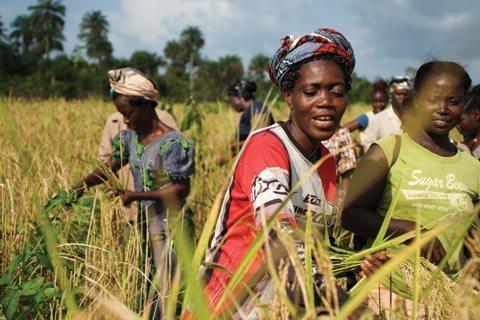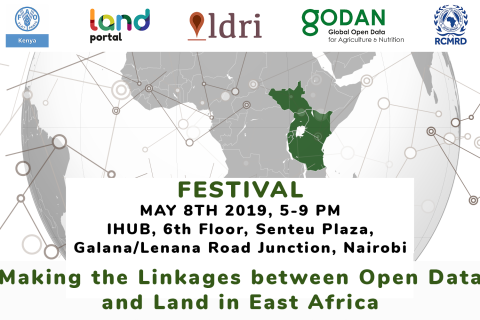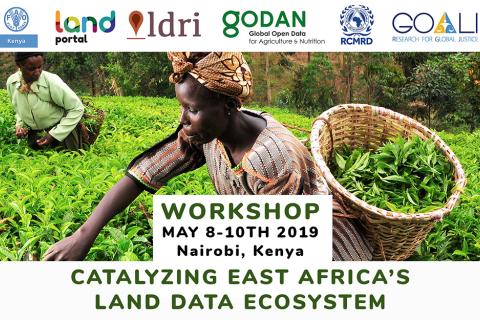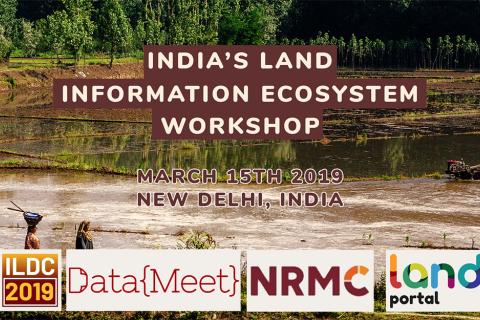Si bien creemos firmemente en el poder del aprendizaje dentro de los espacios virtuales, también somos firmes defensores(as) de las oportunidades de formación presencial en espacios físicos. Esto puede traducirse en talleres, eventos paralelos o festivales y, por supuesto, todos y todas son bienvenidas a asistir!
Colaboración de datos y herramientas para la resiliencia en la región árabe
MIÉRCOLES 19 de febrero de 2025 (13:30 - 15:00 CET)
Data Collaboratives and Tools for Resilience in the Arab Region
WEDNESDAY 19 Feb 2025 (13:30 - 15:00 CET)
Land data is a powerful tool to address the Arab region's pressing challenges in managing land, ranging from climate change impacts to social inequalities and ongoing conflicts. However, significant gaps in land data, exacerbated by closed data systems, limit equitable access to information, hinder informed decision-making and widen developmental gaps, with the significant displacement of people within the region, specifically marginalized groups and IDPs.
Land Rights for Sustainable Development - The Role of Data
Having secure land tenure, ensuring people's confidence in accessing, controlling and utilizing their land, is crucial for promoting sustainable land management practices. It also plays a key role in building resilience against the impacts of climate change, including extreme weather events, rising sea levels, and increased desertification due to higher temperatures.
Creative partnerships for land: Reaching across sectors, constituencies, and geographies [LANDac Conference Parallel Session]
Thursday, June 30
1:30 pm - 3:00 pm CEST
Hybrid format
Register for LANDac Conference to participate
Is the land sector prepared for the data revolution? [LANDac Conference Parallel Session]
Thursday, June 30
9:30 am - 11:00 am CEST
Hybrid format
Register for LANDac Conference to participate
The “Data Revolution” has been ongoing for about sixty years now. Halina (1966) already considered the question of whether this constituted a “revolution” or was “data evolution”.
CFS Side Event: How the VGGT have changed rural women's lives: Key strategies and innovations towards gender equality
The purpose of the side event is to showcase key strategies and innovations that are contributing to gender equality in agriculture and land tenure in the context of the VGGT. It will present how collaboration among different stakeholders at national, regional and global level can support the achievement of SDG targets, and how land monitoring initiatives contribute to tracking progress towards these indicators.
Global Landscapes Forum Session: Open Space for Restoration, Rights and Geodata
This session will build on and contribute to the panel discussion “Challenges in implementing a rights-based approach for sustainable management and restoration of landscapes and forests”. It will include short face-to-face discussions with guest speakers from the panel discussion, engaging the audience directly and through the virtual arena of Wisembly. The conversations will explore many aspects of land rights and restoration, from indigenous people to big data:
Festival: Making the Linkages between Open Data and Land in East Africa
You are invited to join a lively festival devoted to building an open data community in East Africa and making the linkages between open data and land on May 8th from 5PM-9PM at IHUB.
This festival aims bring together local open data aficionados together with l experts from East Africa and beyond as well as international partners.
State of Land Data & Information in East Africa: Catalyzing East Africa's Land Data Ecosystem
There is no doubt the Global Data Revolution has reached the land sector. Government data portals, open access academic journals, community mapping initiatives and other citizen-generated data - there is a palpable positive drive across the world that allows processes such as data collection to be more inclusive and open. But within this data momentum, there are still many barriers and questions: Who can access the data, and how? What data is reliable? Who owns the data? What data is up to date? Can I use the data without inflicting harm?
India's Land Information Ecosystem workshop
Availability of accurate and up to date data and information on land rights, tenures and administration as well as on different land use, such as agriculture, forestry, mining, wildlife, water, housing and infrastructure, is critical to effective land governance and crucial for planning and managing the use of land and land-based resources. However, it is an often-repeated rhetoric that there is a lack of land data - whether it is lack of reliable or up-to-date data or a lack in the existence of any data.
Paginación
- 0
- 1
- 2
- 3



